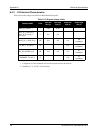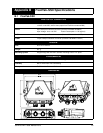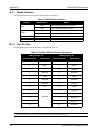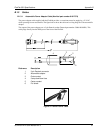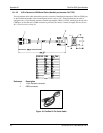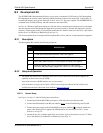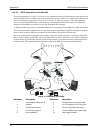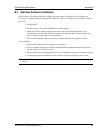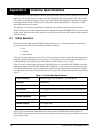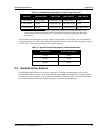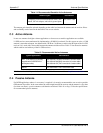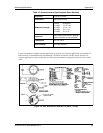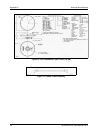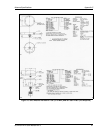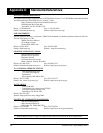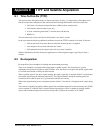
56 SUPERSTAR II User Manual Rev 3
Appendix C Antenna Specifications
The GPS antenna is an important part of the total system performance and its selection should be based on your
application. The L1 GPS receivers include a Low Noise Amplifier (LNA) before the RF ASIC. This +20 dB
LNA permits reasonable performances with a passive GPS antenna. But depending on the cable loss between
the antenna element and the L1 GPS receiver, and position accuracy requirements, a +12 dB up to +36 dB
active GPS antenna may be needed.
This appendix is divided into characteristics for high end active geodetic antennas and passive antennas.
We also offer the coaxial cables required between the GPS antenna and the SUPERSTAR II. You will also find
in this section, different coaxial cables required in your GPS system. The end of this section includes detailed
antenna drawings.
C.1 Cable Selection
The interconnecting cable between the GPS antenna and the receiver is of prime importance for the proper
performance of the system. Three parameters should be considered:
1. Loss
2. Isolation
3. Outer diameter
The bigger the outer diameter, the lower the loss. The loss increases with the length of the cable and decreases
with extra isolation. If the highest accuracy possible is not required, receivers can accept a total cable loss of
3 dB. Depending on the cable type, this could represent a cable run from 2 m up to 10 m.
Table 11 on Page 56 details the specifications of the RG-58 Low Loss Cable (RG-58/U LLDS80) used in the
GPS antenna cable 217-601730-XXX. The RG-58/U LLDS80 is a custom-made low loss noise coaxial cable.
It is a double-shielded cable similar to Belden Type 9310 but with the improvement of having 85% minimum
coverage of the second shield versus the Belden at 55% coverage. The electrical characteristics are included in
Table 11.
Table 11: Coaxial Cable Specifications
Table 12 shows the minimum and maximum cable length when using GPS antenna cable (drawing 217-
601730-XXX) normally required between the receiver and the chassis case of your system. Please see Page 60
for the cable drawing.
Center Conductor #20 Bare Copper wire, Resistance - 33.1 ohms per Km
Insulation Polyethylene
Inner Shield Aluminium Foil - 100% coverage
Outer Shield Tinned copper braid - 85% coverage, Resistance 45.9 ohms per Km
Jacket Black PVC
Nominal Impedance 50 ohms
Nominal Vel. of propagation 66%
Nominal Capacity 101.7 pf per meter
Attenuation @ 1000 MHz: 44.3 dB per 100 m (or 54 dB @ 1575 MHz)



